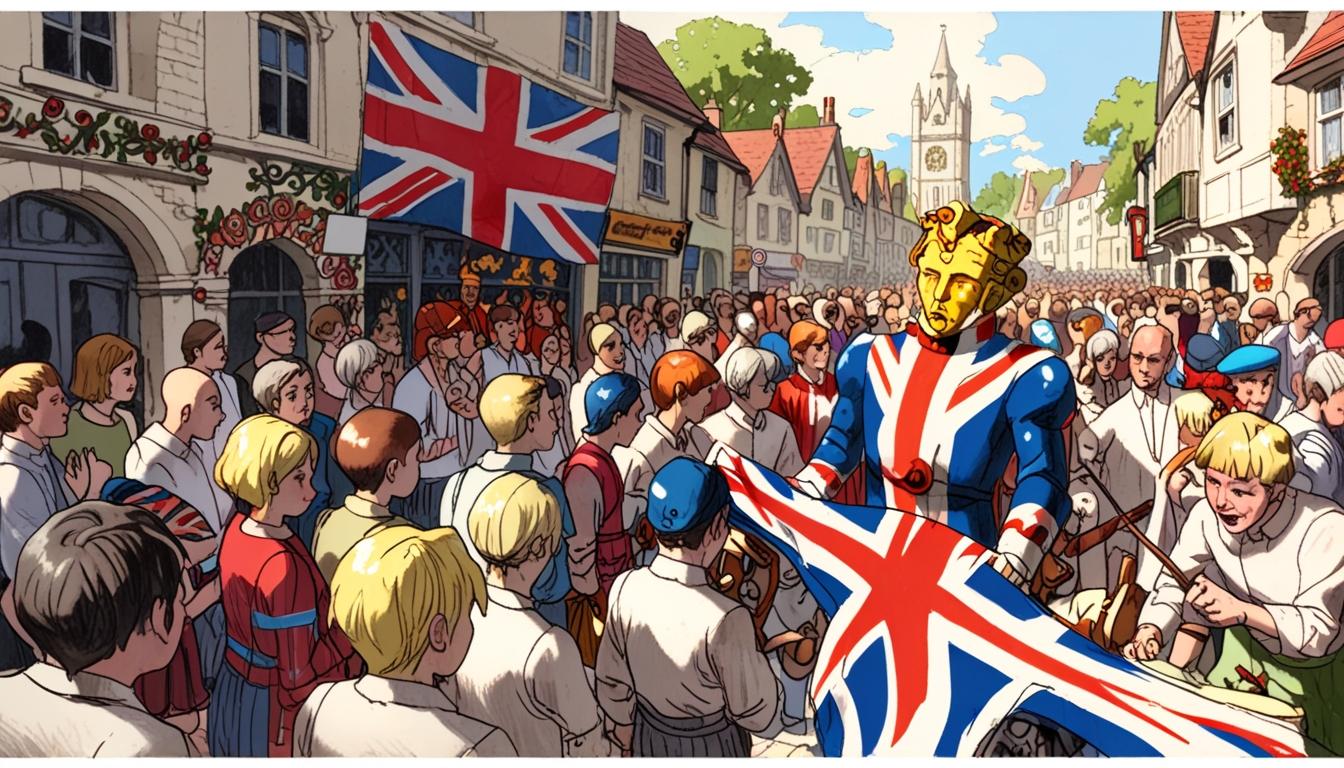A jigsaw artist has raised eyebrows with his claim that a games company urged him to remove the St George's flag from one of his puzzles, labelling the firm as "woke". Mike Jupp, 77, an award-winning artist known for his humorous depictions of village life, reported that Gibsons Games, a family-run business with over a century of history, made specific requests as part of a diversity and inclusion initiative. This included altering a scene from his puzzle entitled 'I Love Spring', which depicts a lively and chaotic village scene complete with a parade, various animals, and distinctively British imagery.
Among the alterations demanded by Gibsons Games was the removal of a busty woman in a bathtub, a bull depicted in a compromising pose with a cow, and a group of Morris dancers, whom the company presumed represented Northern Ireland's Orange Order. Mike expressed his frustration at the requests, stating, “Telling a cartoonist how to depict humour is as disrespectful as it is infuriating." He subsequently halted his collaboration with Gibsons, feeling that the changes undermined his artistic integrity.
Kate Gibson, managing director of the company, responded by affirming the firm's commitment to its values while wishing Jupp well in his future undertakings. This situation reflects a broader discourse surrounding artistic freedom, societal sensitivities, and the impact of contemporary culture on traditional forms of entertainment.
The incident echoes similar controversies in the gaming and entertainment industries regarding the portrayal of historical symbols and imagery. In 2015, Apple removed games featuring the Confederate flag, including 'Ultimate General: Gettysburg', following public discourse on the flag's offensive connotations. While some developers chose to maintain their original game content, this led to their permanent exclusion from the platform, sparking debate over the balance between historical accuracy and societal sensibilities.
Moreover, the removal of Confederate-themed merchandise from various retailers, including Amazon, in response to the Charleston shooting highlighted a critical tension between educational and historical representation and evolving public sentiment. These actions resulted in temporary bans on Civil War-themed games, prompting discussions on how sensitive topics are addressed in media and gaming.
Additionally, broader thematic concerns have emerged within the game industry, particularly regarding the representation of colonialism and its implications. The Atlantic has examined how games like 'Puerto Rico' have faced scrutiny over their portrayal of colonial themes, pushing creators to reassess the cultural narratives embedded in their designs and the responsibility that comes along with them.
Even in the realm of seemingly innocuous entertainment like jigsaw puzzles, the echoes of 19th-century depictions of race and social norms can be heard. Historical puzzles often reinforced racial hierarchies and narratives, teaching children about societal dynamics of the time. This legacy of representation raises important questions about how contemporary artists navigate inherited themes and the pressures to conform to modern sensibilities.
As the conversations around diversity and inclusion in creative industries continue, Mike Jupp's experiences serve as a reminder of the ongoing struggle between artistic freedom and cultural sensitivity. The implications of these dialogues extend beyond singular incidents, influencing how art, literature, and games reflect and shape societal values.
Reference Map
- Paragraph 1: [1]
- Paragraph 2: [1]
- Paragraph 3: [1]
- Paragraph 4: [2][3][4][5]
- Paragraph 5: [6]
- Paragraph 6: [7]
Source: Noah Wire Services
